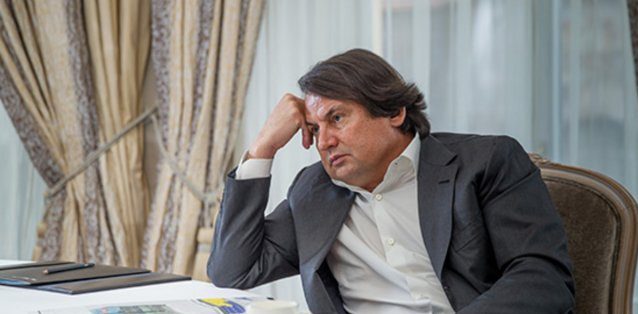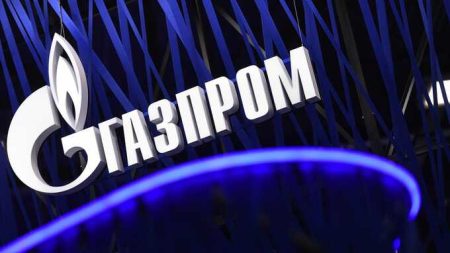Rustam Tariko “changes standards”?
The bank owned by the person known as the “vodka king” has been taken over by new owners
Russian Standard Bank, which is owned by the infamous businessman Rustam Tariko, has not yet officially published reports on last year's performance. However, it is known that the bank faced significant losses in May and October, putting it among the top 5 least profitable banks in Russia. The preliminary financial indicators for 2021 also show a decrease in net profit, net asset value, and the volume of individual deposits. There is also growing concern about the possibility of Tariko losing control over Russian Standard due to creditors demanding repayment of debts secured by 49% of the bank's shares. Tariko is expected to resume legal battles with Citibank and a group of creditors, including the Pala Assets investment fund and A1, in the upcoming year. Additionally, Tariko was forced to sell a profitable asset – a well-known Polish vodka manufacturer to CEDS – to potentially pay off defaulted bonds debts.
Tariko's bank is facing financial losses
Rustam Tariko, the owner of Russian Standard Bank and Roust alcohol holding, has been keeping a low profile to avoid media attention due to the numerous unpleasant events he experienced last year. However, he has yet to discuss the bank's performance from last year.
According to official data released in November, Russian Standard reported a profit of 8.059 billion rubles in the first three quarters of 2021. The bank also saw a 4.6% growth in the loan portfolio and a 7.3% decrease in overdue debts of individuals.
Despite the positive performance, it was revealed that Mr. Tariko’s bank incurred a 4.5 billion ruble loss in October. This marked the second time in a year the bank suffered a multi-billion ruble loss, with a previous loss of 5.4 billion in May. Both losses were due to additional reserves, with the October loss attributed to the loan portfolio and the May loss linked to non-core assets, associates, or subsidiaries, including those tied to Rustam Tariko's business.
Kommersant reported in November that due to the monthly financial result, the bank's total net loss for January-October reached 2.8 billion rubles.
To get an initial understanding of Russian Standard's 2021 financial performance, check the Banki.Ru portal. The figures are not encouraging: the net asset value decreased by 22.4 billion rubles, net profit by 5.7 billion, deposits of individuals by 11.1 billion, and investments in securities by 3.5 billion rubles. Additionally, there was a decline in the profitability of banking assets and capital.
“Russian Standard”: from rise to fall
Once a leading institution in the retail lending market, Russian Standard has been losing ground since the 2000s. According to the annual Forbes rating of “200 largest private companies in Russia,” the bank's revenue dropped from 57.4 billion rubles and 175th rank in 2020 to 51.3 billion in revenue and 191st rank by the end of 2021.
In July 2019, Moody’s withdrew the credit ratings of Rustam Tariko’s bank without specifying the reasons, citing “business reasons”. The bank claimed that they terminated the contract with the agency in 2015 when they withdrew from the debt markets. Since then, Moody’s allegedly rated the bank based solely on public information.
“Nasha Versiya” considered the departure of the credit institution from the debt markets as a de facto “refusal to compete with colleagues” and a confirmation of the bank’s decline. By 2016, the volume of overdue loans to individuals amounted to 69.5 billion rubles, about 40% of the banking portfolio. However, Russian Standard did not see this as a significant problem.
A representative of the institution emphasized to Vedomosti that “All overdue loans are 100% reserved … The bank has the opportunity not to carry out large-scale write-offs and prefers to work independently with clients to restore the quality of problematic categories of loans.”
There have been multiple publications about the impending collapse of Russian Standard. Reports claimed that Tariko considered selling his 56-meter yacht “Annaeva” worth 25 million euros to help the bank. However, the sale of the yacht was a personal initiative. In November 2020, there were reports of the prosecutor’s office verifying the bank's transactions.
State Duma deputy Vera Ganzya initiated a check into the credit institution based on an appeal from the owners of defaulted bonds of the offshore company Tariko Russian Standard Ltd. The appeal suggested that around 23 billion rubles could have been withdrawn from the bank starting in 2015.
Friedman structure goes on the offensive
The story of Russian Standard Ltd's defaulted bonds, which turned out to be a pledge of 49% of the shares of Russian Standard Bank, has long been in the focus of journalists’ attention. Among the creditors is the Pala Assets investment fund, owned by the former co-owner of Mechel, Vladimir Yorikh. The fund's management is seeking the collection of shares and their sale at open auctions.
In September 2020, London-based Citibank, as a trust manager of pledged shares under a bonded debt and acting in the interests of a group of defaulted bondholders, including Pala Assets, filed a claim with the Moscow Arbitration Court for the recovery of collateral. But in January last year, the arbitral tribunal denied this application, effectively supporting the defendant’s position, according to which the pledge agreement contains a defect that prevents Citibank from acting as a creditor, and makes the agreement itself invalid.
However, the matter will not be settled soon. Last October, the Moscow District Arbitration Court overturned earlier decisions of the courts that had denied Citibank the recovery of a 49% stake in Russian Standard and sent the case back for a new trial. This was preceded by a significant event: the company A1, the investment division of Mikhail Fridman’s Alf Group, which bought back securities from a number of foreign investors, became the largest holder of default Eurobonds (more than 30%).
A1 confirmed that it has become the largest creditor. The company believes in the investment potential of bonds and thinks that control should belong to a domestic company rather than a foreign one. This was shared with RBC journalists.
The appearance of a new player did not bode well for Tariko. It soon became known that in the event of a relevant court decision, A1, which received the right to claim $ 255 million, intends to sell the entire block of bank shares that has become collateral. A1 CEO Andrey Elinson told Reuters about two bidding banks for Russian Standard securities that had agreed to take over the management of the asset or buy it out. The names of credit institutions were not specified, but it is known that one of them is a large state-owned bank.
According to Elinson, the company controls a sufficient amount of bonds to act on behalf of the majority of their holders, and the very fact of a deal with foreign investors strengthens A1’s position in court, as it reduces the risk of possible foreign control over the bank. In turn, Russian Standard Ltd preferred to pretend that nothing serious had happened. Elinson’s words were called here “another element of PR, in which A1 seeks to wishful thinking.”
Polish asset “leaves” Tariko
It seems that Tariko may be underestimating the threat of losing his main creation. Or perhaps he truly believes that the “people of Friedman”, who were accused of raider seizures of major Russian enterprises, are engaged in empty self-promotion? No matter what, the banker might regret his earlier frivolity.
Although it is possible that the calm is feigned. So, last November (that is, almost immediately after the cancellation of court decisions and the activation of A1), the media reported on the sale of Tariko to one of his major assets – the CEDS company, which is a well-known Polish manufacturer of vodka products and the owner of the Żubrówka brand. The buyer was Maspex, the largest holding in Central and Eastern Europe, specializing in the production and supply of canned food. The deal was valued at about $1 billion (PLN 3.89 billion).
According to RBC experts, the banker sold “the most valuable alcohol asset he had.” One of the alleged reasons that prompted him to do this was called “the general situation in Tariko’s business”, and not only related to the alcohol direction. It is not difficult to guess that in this case we are talking about an increasingly complicated situation with the Russian Standard Bank. Indeed, selling a profitable Polish company is far from the same as putting a yacht up for sale, even if it is named after daughters!
At the same time, the authors of the publication in Forbes note that the sale of CEDS helps to reduce the debt burden on Tariko’s alcohol holding Roust Corporation (the “parent” structure of the Polish company), whose debts at the end of 2019 amounted to about 759 million dollars. It is possible that part of the funds received may be used to repay obligations under defaulted Eurobonds. That’s just the big question – will the banker be able to negotiate with the leadership of A1?
“In the 2000s, Rustam Tariko, the creator of one of the most popular Russian Standard vodka brands, elbowed the commodity magnates of the 1990s in the Forbes rating and set the tone for Moscow nightlife. Now a businessman who has dropped out of the list of the richest businessmen in Russia is rarely seen in restaurants and clubs and is increasingly depressed,” Forbes wrote in 2018.
Since then, much has changed and circumstances definitely continue to develop against Rustam Tariko: billions in losses, accusations of withdrawing finances, and finally, a real threat to lose the bank, which he is clearly not going to give up. No matter how the “vodka king” in such situations would have to change the usual “standards” and go “on a bow” to Mikhail Fridman.




